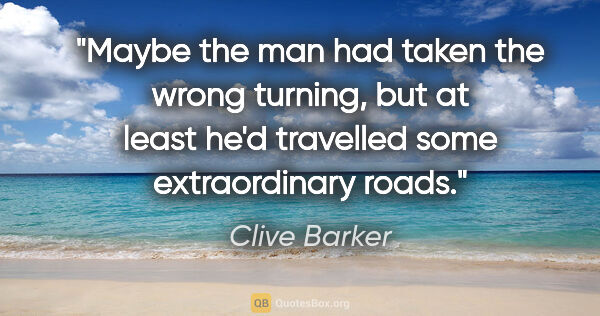Traveled Quotes (page 19)
…. Query: How contrive not to waste one's time?
Answer: By being fully aware of it all the while.
Ways in which this can be done: By spending one's days on an uneasy chair in a dentist's waiting-room; by remaining on one's balcony all of a Sunday afternoon; by listening to lectures in a language on doesn't know; by traveling by the longest and least-convenient train routes, and of course standing all the way; by lining up at the box-office of theaters and then not buying a seat; and so forth.
Albert Camus
another comber of far pleasure followed the first, for his books came suddenly before his eyes, row upon row of volumes, row upon priceless row of calf-bound Thought, of philosophy and fiction, of travel and fantasy; the stern and the ornate, the moods of gold or green, of sepia, rose, or black; the picaresque, the arabesque, the scientific - the essays, the poetry and the drama. All this, he felt, he would now re-enter. He could inhabit the world of words, with, at the back of his...
Mervyn Peake
In my contact with people, I find that, as a rule, it is only the little, narrow people who live for themselves, who never read good books, who do not travel, who never open up their souls in a way to permit them to come into contact with other souls? with the great outside world.
Booker T. Washington
You forget everything. The hours slip by. You travel in your chair through centuries you seem seem to see before you, your thoughts are caught up in the story, dallying with the details or following the course of the plot, you enter into characters, so that it seems as if it were your own heart beating beneath their costumes.
Gustave Flaubert
He who has attained the freedom of reason to any extent cannot, for a long time, regard himself otherwise than as a wanderer on the face of the earth - and not even as a traveler towards a final goal, for there is no such thing. But he certainly wants to observe and keep his eyes open to whatever actually happens in the world; therefore he cannot attach his heart too firmly to anything individual; he must have in himself something wandering that takes pleasure in change and transitoriness.
Friedrich Nietzsche
Do you know what ‘Sputnik’ means in Russian? ‘Travelling companion’. I looked it up in a dictionary not long ago. Kind of a strange coincidence if you think about it. I wonder why the Russians gave their satellite that strange name. It’s just a poor little lump of metal, spinning around the Earth.
Haruki Murakami
We Japanese, on the other hand, know our egos are nothing. We bend our egos, all of the time, and that is where we differ. That is the fundamental difference, Hatsue. We bend our heads, we bow and are silent, because we understand that by ourselves alone, we are nothing at all, dust in a strong wind, while the 'hakujin' believes his aloneness is everything, his separateness is the foundation of his existence. He seeks and grasps, seeks and grasps for his separateness, while we seek union with...
David Guterson

Your body, which is bonding millions of molecules every second, depends on transformation. Breathing and digestion harness transformation. Food and air aren’t just shuffled about but, rather, undergo the exact chemical bonding needed to keep you alive. The sugar extracted from an orange travels to the brain and fuels a thought. The emergent property in this case is the newness of the thought; no molecules in the history of the universe ever combined to produce that exact thought.
Deepak Chopra
Pleasures. First look from morning's window. The rediscovered book. Fascinated faces. Snow, the change of the seasons. The newspaper. The dog. Dialectics. Showering, swimming. Old music. Comfortable shoes. Comprehension. New music. Writing, planting. Traveling. Singing. Being friendly
Bertolt Brecht

